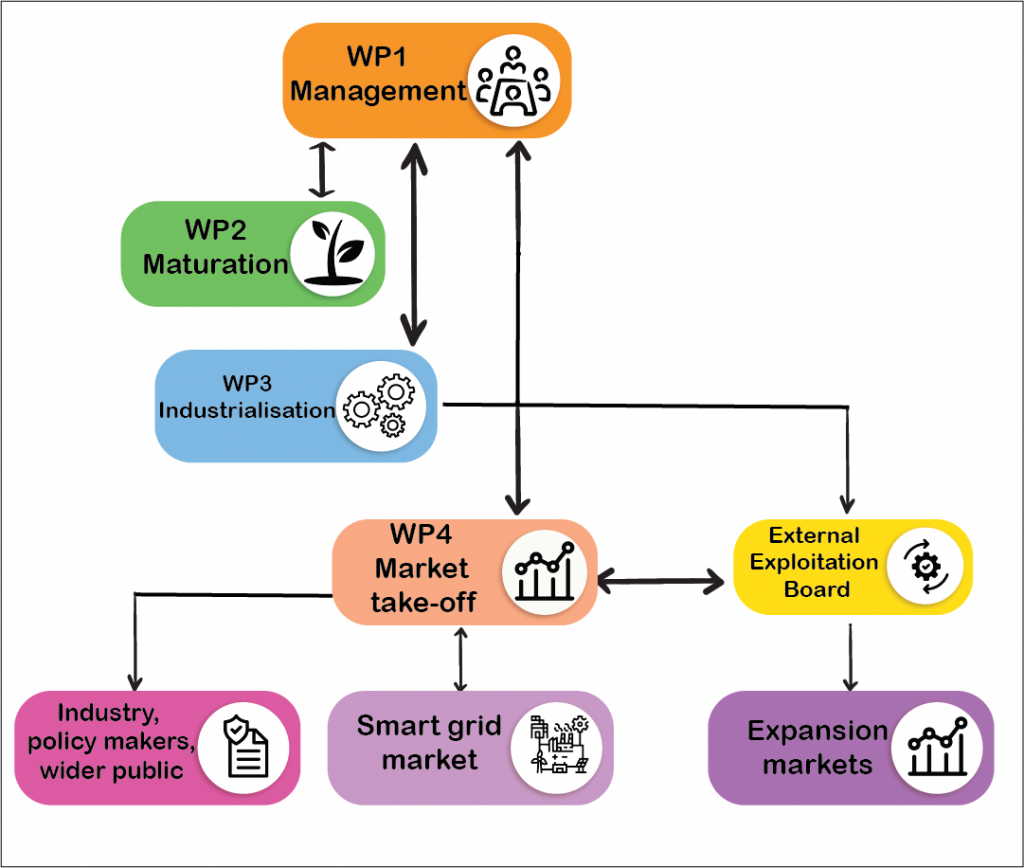This project main objective is to develop, prototype and demonstrate, both in civil/industrial and especially in household/smart-city case studies, a new, cost-effective, Smart LightwAve Multi-modal Distributed Acoustic Strain and Temperaturephotonic sensing system (SLaM-DAST).
In order to fulfil its goals within the 30-month project duration, the activities are organized in 4 different workpackages:

WP1: Project management
The aim of WP1 is to monitor and coordinate the activities carried out in the rest of WPs in order to ensure a successful project execution. Project coordination and consortium management will consider scientific/technical aspects as well as administrative duties.
WP2: Technical maturation
In WP2 the SLaM-DAST sensor system will be designed and developed to achieve the technical improvements required for market uptake, reliability improvement and cost reduction in mass replication; performance tests will be carried out and an optimized SLaM-DAST version suitable for industrial manufacturing (to be carried out in WP3) will be delivered and tested.
WP3: Product industrialisation
In this workpackage dedicated to product industialization, the performance characterisation of optimized SLaM-DAST equipment (hardware and software, and sensing cable) will be carried out, together with pre-compliance and compliance certifications. The industrial manufacturing process will be evaluated and optimized. Finally, the system will be validated with in-field demonstrations for smart city and smart industry applications.
WP4: Market take-off
This workpackage is dedicated on optimisation of value creation, as well as exploitation and dissemination activities, as well as to management of IPR protection. Carefully devised marketing strategy will be result of this WP as well as communication and market awareness. This will include the elaboration of electronic and printed promotional material, publications and presentations at trade shows and conference, and identification and invitation of external exploitation partners. Furthermore, the adoption of open standards and guidelines for data exchange and control protocols will be proposed, with the involvement of the External Exploitation Partners.
